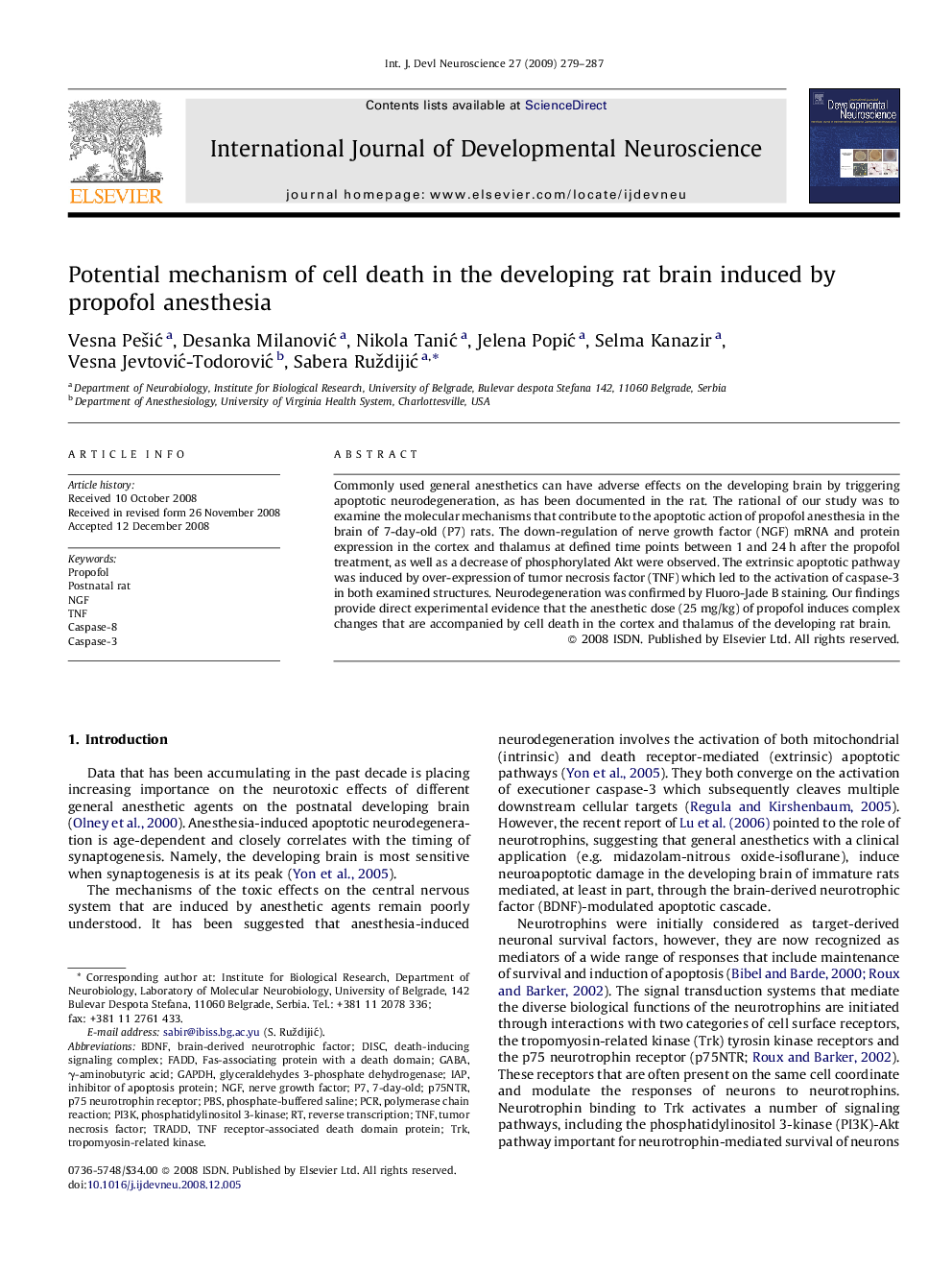| Article ID | Journal | Published Year | Pages | File Type |
|---|---|---|---|---|
| 2787032 | International Journal of Developmental Neuroscience | 2009 | 9 Pages |
Commonly used general anesthetics can have adverse effects on the developing brain by triggering apoptotic neurodegeneration, as has been documented in the rat. The rational of our study was to examine the molecular mechanisms that contribute to the apoptotic action of propofol anesthesia in the brain of 7-day-old (P7) rats. The down-regulation of nerve growth factor (NGF) mRNA and protein expression in the cortex and thalamus at defined time points between 1 and 24 h after the propofol treatment, as well as a decrease of phosphorylated Akt were observed. The extrinsic apoptotic pathway was induced by over-expression of tumor necrosis factor (TNF) which led to the activation of caspase-3 in both examined structures. Neurodegeneration was confirmed by Fluoro-Jade B staining. Our findings provide direct experimental evidence that the anesthetic dose (25 mg/kg) of propofol induces complex changes that are accompanied by cell death in the cortex and thalamus of the developing rat brain.
